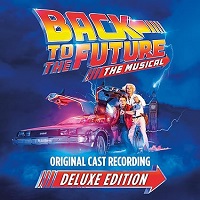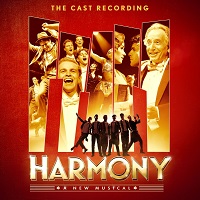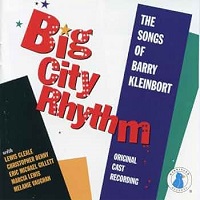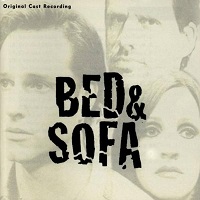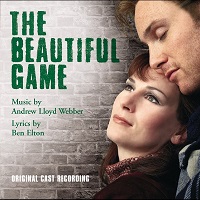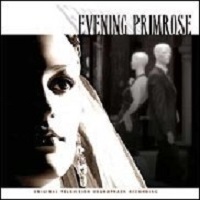 Television Cast, 1966 (Kritzerland)
Television Cast, 1966 (Kritzerland)  (3 / 5) Stephen Sondheim provided a brief but compelling score for this TV musical with a teleplay by James Goldman, based on a short story by John Collier. It tells the odd tale of a struggling poet named Charles, who decides to retreat from society by remaining in a Manhattan department store after closing time; he apparently intends to remain there alone indefinitely, retreating to the store’s nether regions during business hours, but soon he comes upon a small group of people who have decided to do the same thing. Charles falls in love with Ella, a young woman who has lived in the store since early childhood and barely remembers the outside world. In the telecast, Charles was played by Anthony Perkins, Ella by Charmian Carr. No cast album was released until 2008, when Krizerland transferred the soundtrack recordings of the songs to CD. Since it was never a stage musical and is unlikely ever to be one, Evening Primrose doesn’t warrant a lengthy review here, but it must be said that the four-song score contains two of the best ballads Sondheim ever wrote: Ella’s touching reminiscence “I Remember,” and the gorgeous duet “Take Me to the World.” Perkins, who had not very successfully tried his hand as a musical theater leading man in the 1960 Broadway show Greenwillow, is well cast and persuasive as Charles, while Carr, best known for her performance as Liesl in the mega-hit film version of The Sound of Music, is a plaintive Ella. The mid-’60s monaural sound quality of the recording is not great but acceptable. [Note: The full, 52-minute telecast is available separately on home video.] — Michael Portantiere
(3 / 5) Stephen Sondheim provided a brief but compelling score for this TV musical with a teleplay by James Goldman, based on a short story by John Collier. It tells the odd tale of a struggling poet named Charles, who decides to retreat from society by remaining in a Manhattan department store after closing time; he apparently intends to remain there alone indefinitely, retreating to the store’s nether regions during business hours, but soon he comes upon a small group of people who have decided to do the same thing. Charles falls in love with Ella, a young woman who has lived in the store since early childhood and barely remembers the outside world. In the telecast, Charles was played by Anthony Perkins, Ella by Charmian Carr. No cast album was released until 2008, when Krizerland transferred the soundtrack recordings of the songs to CD. Since it was never a stage musical and is unlikely ever to be one, Evening Primrose doesn’t warrant a lengthy review here, but it must be said that the four-song score contains two of the best ballads Sondheim ever wrote: Ella’s touching reminiscence “I Remember,” and the gorgeous duet “Take Me to the World.” Perkins, who had not very successfully tried his hand as a musical theater leading man in the 1960 Broadway show Greenwillow, is well cast and persuasive as Charles, while Carr, best known for her performance as Liesl in the mega-hit film version of The Sound of Music, is a plaintive Ella. The mid-’60s monaural sound quality of the recording is not great but acceptable. [Note: The full, 52-minute telecast is available separately on home video.] — Michael Portantiere
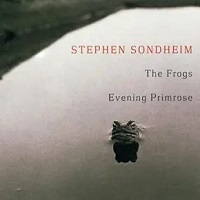 Studio Cast, 2001 (Nonesuch)
Studio Cast, 2001 (Nonesuch)  (4 / 5) The first part of this essential album contains the first commercial recordings of the songs that Sondheim wrote for The Frogs (see separate review, under that title). The second part is devoted to his even-briefer score for Evening Primrose, the 1966 TV musical that concerns the drop-out poet Charles’s encounter with, as Frank Rich phrases it in his notes for this recording, “a mysterious nocturnal society of eccentric shut-ins as well as the muse he’s been searching for, a sort of modern Rapunzel named Ella.” Here, Charles and Ella are sung by Neil Patrick Harris and Theresa McCarthy. Both do fine jobs of delivering the highlights of this mini-musical that are mentioned in the review above, as well as the score’s only other two numbers: Charles’s character-establishing “If You Can Find Me, I’m Here” and the extended duet “When?” All of the songs benefit greatly from Jonathan Tunick’s typically superb orchestrations as played by the American Theatre Orchestra under the baton of Sondheim specialist Paul Gemignani. The CD boasts Nonesuch’s usual, first-rate recorded sound: powerful but not harsh, ambient but not overly reverberant, with great dynamic range. — M.P.
(4 / 5) The first part of this essential album contains the first commercial recordings of the songs that Sondheim wrote for The Frogs (see separate review, under that title). The second part is devoted to his even-briefer score for Evening Primrose, the 1966 TV musical that concerns the drop-out poet Charles’s encounter with, as Frank Rich phrases it in his notes for this recording, “a mysterious nocturnal society of eccentric shut-ins as well as the muse he’s been searching for, a sort of modern Rapunzel named Ella.” Here, Charles and Ella are sung by Neil Patrick Harris and Theresa McCarthy. Both do fine jobs of delivering the highlights of this mini-musical that are mentioned in the review above, as well as the score’s only other two numbers: Charles’s character-establishing “If You Can Find Me, I’m Here” and the extended duet “When?” All of the songs benefit greatly from Jonathan Tunick’s typically superb orchestrations as played by the American Theatre Orchestra under the baton of Sondheim specialist Paul Gemignani. The CD boasts Nonesuch’s usual, first-rate recorded sound: powerful but not harsh, ambient but not overly reverberant, with great dynamic range. — M.P.
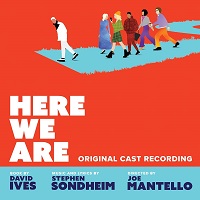 Off-Broadway Cast, 2024 (Concord Theatricals)
Off-Broadway Cast, 2024 (Concord Theatricals)  (4.5 / 5) As staged Off-Broadway at The Shed in late 2023, Sondheim’s final musical — which combines two Luis Buñuel films to create one story about a group of wealthy friends who struggle all day to find a place to eat and then can’t leave the room — offered strange, surreal satisfaction. The cast album of Here We Are captures the show’s bizarreness while still showcasing the small-scale treasures of Sondheim’s last songs. The wise inclusion on the recording of significant patches of David Ives’ book scenes (there is very little music in the second act) helps to capture the show’s shifting flavors, even if parts of the story will likely remain inscrutable to some listeners. Sondheim’s music sometimes goes beyond evoking his past work; certain sections seem to quote Passion and Sunday in the Park with George outright. But there are worse things than revisiting some of his most wistful melodic gestures, and there are moments in this score that suggest a self-referential wink, too. His lyrics remain outstandingly specific to character in their rhythms, vocabulary, and grammar, particularly in the comic “Bishop’s Song” for a character (played by David Hyde Pierce) who would rather be working in another field, and in the show’s most glistening addition to the canon, the aria “Shine” for Marianne (Rachel Bay Jones). “I want things to gleam / To be what they seem / And not what they are,” she sings in one of Sondheim’s last perfect constructions. It’s not his most densely rhymed score, nor his most unimpeachable; for example, a parodically mournful ballad, “It Is What It Is,” for Tracie Bennett (doing a ridiculous French accent), misfires on the recording as it did onstage. But Sondheim clearly relishes the unique weirdnesses of each of his characters, and sometimes gives them notably lush, romantic melodies as in “The Soldier’s Dream,” sung brightly by Jin Ha and Micaela Diamond. (The most frustrating aspect of the album is how often the richest music is interrupted by spoken asides referencing stage business by other characters, doing little to clarify or enrich those moments.) While Here We Are is a true ensemble piece, Jones is especially delightful in animating Marianne’s willful ignorance masquerading as innocence, and lovely as she sounds when singing, it’s the recorded book scenes that demonstrate the complexities she squeezes out of a defiantly superficial character, as when she makes a meal out of delicious consonants in sultry, silly lines such as “I found you a credenza for your embassy.” Perhaps more than anything else, this score in album form is a testament to the 50-year-plus collaboration between orchestrator Jonathan Tunick and Sondheim. The recording not only exquisitely communicates Tunick’s sumptuous, quirky, and always dramatically motivated treatment of Sondheim’s compositions but also demonstrates, through the inclusion of several Act II interludes and the substantial, shimmering exit music, how lovingly Tunick developed those melodies in instrumental sections presumably constructed after Sondheim’s death. (The entr’acte, for instance, fleshes out a gorgeous, brief melody sung by Steven Pasquale in “The Road 4 — Part 2.”) When it comes to that partnership, to quote Marianne, “Don’t we all feel blessed?” — Dan Rubins
(4.5 / 5) As staged Off-Broadway at The Shed in late 2023, Sondheim’s final musical — which combines two Luis Buñuel films to create one story about a group of wealthy friends who struggle all day to find a place to eat and then can’t leave the room — offered strange, surreal satisfaction. The cast album of Here We Are captures the show’s bizarreness while still showcasing the small-scale treasures of Sondheim’s last songs. The wise inclusion on the recording of significant patches of David Ives’ book scenes (there is very little music in the second act) helps to capture the show’s shifting flavors, even if parts of the story will likely remain inscrutable to some listeners. Sondheim’s music sometimes goes beyond evoking his past work; certain sections seem to quote Passion and Sunday in the Park with George outright. But there are worse things than revisiting some of his most wistful melodic gestures, and there are moments in this score that suggest a self-referential wink, too. His lyrics remain outstandingly specific to character in their rhythms, vocabulary, and grammar, particularly in the comic “Bishop’s Song” for a character (played by David Hyde Pierce) who would rather be working in another field, and in the show’s most glistening addition to the canon, the aria “Shine” for Marianne (Rachel Bay Jones). “I want things to gleam / To be what they seem / And not what they are,” she sings in one of Sondheim’s last perfect constructions. It’s not his most densely rhymed score, nor his most unimpeachable; for example, a parodically mournful ballad, “It Is What It Is,” for Tracie Bennett (doing a ridiculous French accent), misfires on the recording as it did onstage. But Sondheim clearly relishes the unique weirdnesses of each of his characters, and sometimes gives them notably lush, romantic melodies as in “The Soldier’s Dream,” sung brightly by Jin Ha and Micaela Diamond. (The most frustrating aspect of the album is how often the richest music is interrupted by spoken asides referencing stage business by other characters, doing little to clarify or enrich those moments.) While Here We Are is a true ensemble piece, Jones is especially delightful in animating Marianne’s willful ignorance masquerading as innocence, and lovely as she sounds when singing, it’s the recorded book scenes that demonstrate the complexities she squeezes out of a defiantly superficial character, as when she makes a meal out of delicious consonants in sultry, silly lines such as “I found you a credenza for your embassy.” Perhaps more than anything else, this score in album form is a testament to the 50-year-plus collaboration between orchestrator Jonathan Tunick and Sondheim. The recording not only exquisitely communicates Tunick’s sumptuous, quirky, and always dramatically motivated treatment of Sondheim’s compositions but also demonstrates, through the inclusion of several Act II interludes and the substantial, shimmering exit music, how lovingly Tunick developed those melodies in instrumental sections presumably constructed after Sondheim’s death. (The entr’acte, for instance, fleshes out a gorgeous, brief melody sung by Steven Pasquale in “The Road 4 — Part 2.”) When it comes to that partnership, to quote Marianne, “Don’t we all feel blessed?” — Dan Rubins


 (2.5 / 5) Scott Brown and Anthony King developed this two-person comic gem about two composers writing a musical. The fictional writers have created a show portraying Johannes Gutenberg and the invention of the printing press to help a town’s illiterate populace. This recording features in the roles of the two aspiring writers Christopher Fitzgerald as Bud Davenport and Jeremy Shamos as Doug Simon. Bud and Doug are very sincere, but their show is very bad. Nevertheless, they are pitching it to audiences and (they hope) to “famous Broadway producers.” Unfortunately, since this is just a reading and they don’t have a cast yet, Bud and Doug are forced to play all of the parts themselves, including the title role as well as an evil monk, a lovely young woman (aptly named Helvetica), and all of the other various townspeople. This potentially confusing premise is kept afloat by distinctive performances from Fitzgerald and Shamos, who take on unique accents and personas for each of the characters. On stage, the actors would don hats bearing the character names or descriptions to help make it clear to the audience whom they were playing at any given moment, speedily switching from one to another, and while these visual gags can’t be seen on the recording, it’s a credit to the duo that listeners could almost forget that this was a two-person show when listening through the cast album. While the material is enjoyable, it is slight; the comedy is hit-or-miss, and there are crass jokes about dead babies, anti-Semitic flower girls, and even suicide. In the end, the songs most often prompt unfavorable comparisons to other scores: for example, Urinetown comments on itself more cleverly, while [title of show] breaks the fourth wall more effectively. Still, the “plot” of Gutenberg! The Musical is delightfully wacky, crazy enough to keep you laughing but just grounded enough to make you think that someone out there might possibly think the show within this show would be a good idea. — Forrest Hutchinson
(2.5 / 5) Scott Brown and Anthony King developed this two-person comic gem about two composers writing a musical. The fictional writers have created a show portraying Johannes Gutenberg and the invention of the printing press to help a town’s illiterate populace. This recording features in the roles of the two aspiring writers Christopher Fitzgerald as Bud Davenport and Jeremy Shamos as Doug Simon. Bud and Doug are very sincere, but their show is very bad. Nevertheless, they are pitching it to audiences and (they hope) to “famous Broadway producers.” Unfortunately, since this is just a reading and they don’t have a cast yet, Bud and Doug are forced to play all of the parts themselves, including the title role as well as an evil monk, a lovely young woman (aptly named Helvetica), and all of the other various townspeople. This potentially confusing premise is kept afloat by distinctive performances from Fitzgerald and Shamos, who take on unique accents and personas for each of the characters. On stage, the actors would don hats bearing the character names or descriptions to help make it clear to the audience whom they were playing at any given moment, speedily switching from one to another, and while these visual gags can’t be seen on the recording, it’s a credit to the duo that listeners could almost forget that this was a two-person show when listening through the cast album. While the material is enjoyable, it is slight; the comedy is hit-or-miss, and there are crass jokes about dead babies, anti-Semitic flower girls, and even suicide. In the end, the songs most often prompt unfavorable comparisons to other scores: for example, Urinetown comments on itself more cleverly, while [title of show] breaks the fourth wall more effectively. Still, the “plot” of Gutenberg! The Musical is delightfully wacky, crazy enough to keep you laughing but just grounded enough to make you think that someone out there might possibly think the show within this show would be a good idea. — Forrest Hutchinson
 (2 / 5) The first Broadway production of Gutenberg! reunited former Book of Mormon co-stars Andrew Rannells and Josh Gad, giving them another excellent vehicle to showcase their comedic chemistry and range. As is typical when an Off-Broadway show goes to Broadway, there were some things lost, some things gained. This cast album is longer than the Off-Broadway recording, which at 58 minutes in length was already threatening to outwear its welcome. The additional 10 minutes of material to be found here strain a listener’s goodwill. On the other hand, the spoken dialogue that’s included has been cleverly modified to address listeners to the recording rather than live audience members, and the new jokes are mostly an improvement over those in the previous iteration. Most likely, one’s enjoyment of this album will be closely linked to one’s affinity for Rannells and Gad. They are appropriately earnest as Bud and Doug. and fully committed to each of their bit parts. The best songs are Helvetica’s love ballad, “I Can’t Read,” which contains some expert comedy lyrics; the stereotypical Act 1 Finale, “Tomorrow Is Tonight”; and the deliciously evil “Monk With Me.” On Broadway, the show featured different celebrity guest stars at each performance, playing the famous Broadway producer who offers Bud and Doug their Broadway contract. Mel Brooks was chosen to appear in that brief role on the album, and he’s a wonderful choice for it. — F.H.
(2 / 5) The first Broadway production of Gutenberg! reunited former Book of Mormon co-stars Andrew Rannells and Josh Gad, giving them another excellent vehicle to showcase their comedic chemistry and range. As is typical when an Off-Broadway show goes to Broadway, there were some things lost, some things gained. This cast album is longer than the Off-Broadway recording, which at 58 minutes in length was already threatening to outwear its welcome. The additional 10 minutes of material to be found here strain a listener’s goodwill. On the other hand, the spoken dialogue that’s included has been cleverly modified to address listeners to the recording rather than live audience members, and the new jokes are mostly an improvement over those in the previous iteration. Most likely, one’s enjoyment of this album will be closely linked to one’s affinity for Rannells and Gad. They are appropriately earnest as Bud and Doug. and fully committed to each of their bit parts. The best songs are Helvetica’s love ballad, “I Can’t Read,” which contains some expert comedy lyrics; the stereotypical Act 1 Finale, “Tomorrow Is Tonight”; and the deliciously evil “Monk With Me.” On Broadway, the show featured different celebrity guest stars at each performance, playing the famous Broadway producer who offers Bud and Doug their Broadway contract. Mel Brooks was chosen to appear in that brief role on the album, and he’s a wonderful choice for it. — F.H.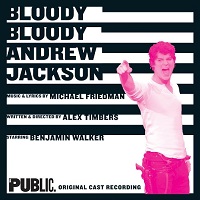
 (1.5 / 5) Before Hamilton took the world by storm in 2016 with a musical style previously underrepresented on Broadway and a story featuring American historical figures, composer-lyricist Michael Friedman and book writer Alex Timbers utilized similar elements to create Bloody Bloody Andrew Jackson in 2010. The cast album was released following the musical’s successful engagement at The Public Theater and before its disappointing run of 120 performances on Broadway. If the show is certainly no Hamilton, its punk rock score still offers some genuine moments to savor. Take the opening number, “Populism Yea Yea.” Only the most hardened critics could resist banging their heads along to the catchy lyrics. And give a listen to the recording’s final track, “The Hunters of Kentucky,” for another prime example of Friedman’s ability to excite the listener. You won’t have long to wait between those two highlights; the recording is a slight 28 minutes long, making it one of the shortest cast albums ever. Bloody Bloody Andrew Jackson attempts to satirize its title character, played by Benjamin Walker, by portraying him as a foulmouthed, angsty, emo rock star. The idea is to lampoon Jackson’s most controversial decisions and actions by attributing them to his immature, reactive personality, a device that may not register when one is listening to the songs out of context. The score also makes the mistake of glamorizing Jackson’s emotionality as the show goes on, depriving the satire of its bite. Additionally, it should be noted that the original production was widely criticized by Native American activist groups, and subsequent productions have been protested, due to the material’s perceived insensitivity in its depiction of historical events. Comparisons to Hamilton only go so far, given Bloody Bloody Andrew Jackson‘s lack of nuance and the disparity in quality between the two scores. — Forrest Hutchinson
(1.5 / 5) Before Hamilton took the world by storm in 2016 with a musical style previously underrepresented on Broadway and a story featuring American historical figures, composer-lyricist Michael Friedman and book writer Alex Timbers utilized similar elements to create Bloody Bloody Andrew Jackson in 2010. The cast album was released following the musical’s successful engagement at The Public Theater and before its disappointing run of 120 performances on Broadway. If the show is certainly no Hamilton, its punk rock score still offers some genuine moments to savor. Take the opening number, “Populism Yea Yea.” Only the most hardened critics could resist banging their heads along to the catchy lyrics. And give a listen to the recording’s final track, “The Hunters of Kentucky,” for another prime example of Friedman’s ability to excite the listener. You won’t have long to wait between those two highlights; the recording is a slight 28 minutes long, making it one of the shortest cast albums ever. Bloody Bloody Andrew Jackson attempts to satirize its title character, played by Benjamin Walker, by portraying him as a foulmouthed, angsty, emo rock star. The idea is to lampoon Jackson’s most controversial decisions and actions by attributing them to his immature, reactive personality, a device that may not register when one is listening to the songs out of context. The score also makes the mistake of glamorizing Jackson’s emotionality as the show goes on, depriving the satire of its bite. Additionally, it should be noted that the original production was widely criticized by Native American activist groups, and subsequent productions have been protested, due to the material’s perceived insensitivity in its depiction of historical events. Comparisons to Hamilton only go so far, given Bloody Bloody Andrew Jackson‘s lack of nuance and the disparity in quality between the two scores. — Forrest Hutchinson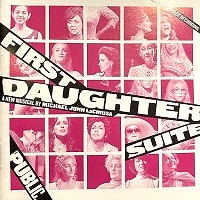
 (4 / 5)
(4 / 5) 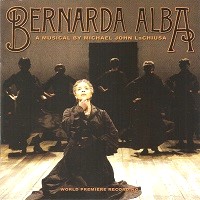 Off-Broadway Cast,
Off-Broadway Cast, 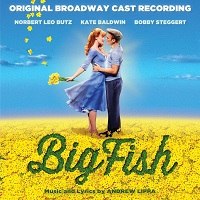
 (3 / 5) Big Fish arrived on Broadway in 2013 with a score by Andrew Lippa and was imaginatively directed by Susan Stroman, but it did not last more than 100 performances. Fortunately, this recording has preserved much of the show’s charm. A strong cast includes Tony Award winner Norbert Leo Butz as Edward Bloom, a yarn-spinning, traveling salesman who dazzles his son, Will (a pleasant-sounding Bobby Steggart), with stories of adventure that stretch the imagination. These oftentimes unbelievable tales strain Edward’s relationship with his son and frustrate his long-suffering wife, played by Kate Baldwin. Butz sounds fantastic throughout; he’s youthful and charming in the opening number, “Be the Hero,” and inspiring in his solo, “Fight the Dragons.” Baldwin’s endearing soprano is much appreciated in softer moments such as the lovely “ I Don’t Need A Roof.” The score culminates with the highly emotional song “How It Ends,” a reconciliation for father and son. Unfortunately, between the effective songs for the main characters, there are several production numbers featuring other characters that do not come across nearly as well on the recording and may serve to make this album a slightly frustrating, but certainly not a profitless, listening experience. — Forrest Hutchinson
(3 / 5) Big Fish arrived on Broadway in 2013 with a score by Andrew Lippa and was imaginatively directed by Susan Stroman, but it did not last more than 100 performances. Fortunately, this recording has preserved much of the show’s charm. A strong cast includes Tony Award winner Norbert Leo Butz as Edward Bloom, a yarn-spinning, traveling salesman who dazzles his son, Will (a pleasant-sounding Bobby Steggart), with stories of adventure that stretch the imagination. These oftentimes unbelievable tales strain Edward’s relationship with his son and frustrate his long-suffering wife, played by Kate Baldwin. Butz sounds fantastic throughout; he’s youthful and charming in the opening number, “Be the Hero,” and inspiring in his solo, “Fight the Dragons.” Baldwin’s endearing soprano is much appreciated in softer moments such as the lovely “ I Don’t Need A Roof.” The score culminates with the highly emotional song “How It Ends,” a reconciliation for father and son. Unfortunately, between the effective songs for the main characters, there are several production numbers featuring other characters that do not come across nearly as well on the recording and may serve to make this album a slightly frustrating, but certainly not a profitless, listening experience. — Forrest Hutchinson
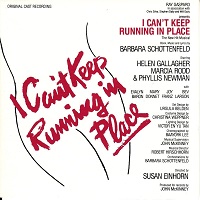
 (1 / 5) This musical about a six-week women’s assertiveness training workshop came across as little more than an audition piece for Barbara Schottenfeld, who wrote the book, music, and lyrics. The songs are decent enough, sincere and spirited, even if the music disappears from your mind the moment after you’ve heard it. But the book just isn’t there, and the characters are minimally delineated: the rich and acerbic one, the fat one, the smug student, the doormat, and so on. They occasionally take part in telephone conversations about husbands and children, but mostly they sing one song after another. As performed by Helen Gallagher, Joy Franz, Evalyn Baron, Phyllis Newman, and especially Marcia Rodd in the role of the troubled therapists, the musical numbers are momentarily effective but, without plot or characters to back them up, they’re out there on their own — David Wolf
(1 / 5) This musical about a six-week women’s assertiveness training workshop came across as little more than an audition piece for Barbara Schottenfeld, who wrote the book, music, and lyrics. The songs are decent enough, sincere and spirited, even if the music disappears from your mind the moment after you’ve heard it. But the book just isn’t there, and the characters are minimally delineated: the rich and acerbic one, the fat one, the smug student, the doormat, and so on. They occasionally take part in telephone conversations about husbands and children, but mostly they sing one song after another. As performed by Helen Gallagher, Joy Franz, Evalyn Baron, Phyllis Newman, and especially Marcia Rodd in the role of the troubled therapists, the musical numbers are momentarily effective but, without plot or characters to back them up, they’re out there on their own — David Wolf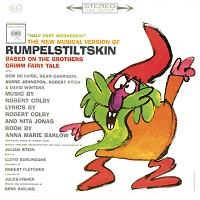

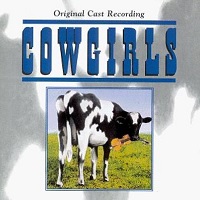
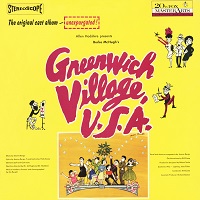
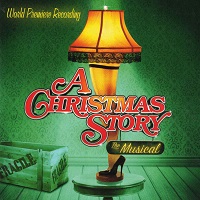
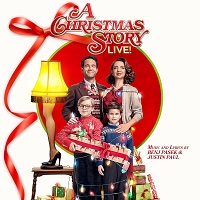
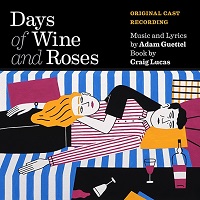
 (5 / 5) Days of Wine and Roses marks the first musical with a score by composer/lyricist Adam Guettel that has been produced since Guettel’s triumph with The Light in the Piazza in 2005, and it was well worth the wait. Recorded in advance of the show’s Broadway premiere but after its initial production at the Atlantic Theater Company, this cast album is a beautiful gut punch. The music is different from any Broadway score of recent memory — full of earworms without being simple, and harmonically fascinating while remaining deliciously tonal. The orchestrations, which delight the ear, were also provided by Guettel. With a book by Craig Lucas, Days of Wine and Roses is based on the film of the same title. Brian d’Arcy James and Kelli O’Hara star as the show’s central couple, Kirsten Arnesen and Joe Clay, who meet on a boat (the album begins with the sound of rushing waves) and end up embarking on a devastating descent into alcoholism, each pulling the other further down. “Evanesce,” the song that the couple sings when they start drinking together, is a jazzy delight, complicated by ominous lyrics that predict their future (“Two dolphins breaking away / Two dolphins right to the grave/ Are we”). With the exception of the sweet-voiced Ella Dane Morgan as the couple’s young daughter, Lila, hardly any other performers are heard on the album; but James and O’Hara sing so well, and their voices blend so beautifully, that listeners won’t mind at all. O’Hara’s soprano has only become more colorful and expansive since she starred in Piazza, and “There Go I,” a beautiful ballad with evocative lyrics, serves as a showcase for her wondrous talent. “As The Water Loves The Stone” is one of the most heartfelt love songs this reviewer has ever heard, while the couple’s individual “mad scene” songs, “435” and “Morton Salt Girl,” would serve as playgrounds for any actor. The overall tone of the score is very sad, and many listeners may find themselves becoming emotional. It’s hard not to cry during “Turlycue,” the plaintive duet between a suffering mother and a confused daughter, and the joyfulness of “First Breath” becomes quite moving due to the direction of the plot. No musical theater maven should be without this recording; whether it haunts you, inspires you, or even triggers you, it’s certain to have a profound effect. — Charles Kirsch
(5 / 5) Days of Wine and Roses marks the first musical with a score by composer/lyricist Adam Guettel that has been produced since Guettel’s triumph with The Light in the Piazza in 2005, and it was well worth the wait. Recorded in advance of the show’s Broadway premiere but after its initial production at the Atlantic Theater Company, this cast album is a beautiful gut punch. The music is different from any Broadway score of recent memory — full of earworms without being simple, and harmonically fascinating while remaining deliciously tonal. The orchestrations, which delight the ear, were also provided by Guettel. With a book by Craig Lucas, Days of Wine and Roses is based on the film of the same title. Brian d’Arcy James and Kelli O’Hara star as the show’s central couple, Kirsten Arnesen and Joe Clay, who meet on a boat (the album begins with the sound of rushing waves) and end up embarking on a devastating descent into alcoholism, each pulling the other further down. “Evanesce,” the song that the couple sings when they start drinking together, is a jazzy delight, complicated by ominous lyrics that predict their future (“Two dolphins breaking away / Two dolphins right to the grave/ Are we”). With the exception of the sweet-voiced Ella Dane Morgan as the couple’s young daughter, Lila, hardly any other performers are heard on the album; but James and O’Hara sing so well, and their voices blend so beautifully, that listeners won’t mind at all. O’Hara’s soprano has only become more colorful and expansive since she starred in Piazza, and “There Go I,” a beautiful ballad with evocative lyrics, serves as a showcase for her wondrous talent. “As The Water Loves The Stone” is one of the most heartfelt love songs this reviewer has ever heard, while the couple’s individual “mad scene” songs, “435” and “Morton Salt Girl,” would serve as playgrounds for any actor. The overall tone of the score is very sad, and many listeners may find themselves becoming emotional. It’s hard not to cry during “Turlycue,” the plaintive duet between a suffering mother and a confused daughter, and the joyfulness of “First Breath” becomes quite moving due to the direction of the plot. No musical theater maven should be without this recording; whether it haunts you, inspires you, or even triggers you, it’s certain to have a profound effect. — Charles Kirsch

